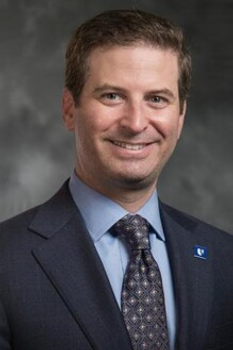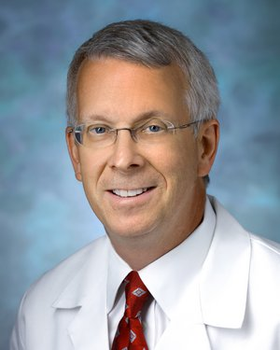Paroxysmal Supraventricular Tachycardia (PSVT) Overview
Learn About Paroxysmal Supraventricular Tachycardia (PSVT)
Paroxysmal supraventricular tachycardia (PSVT) is episodes of a rapid heart rate that start in a part of the heart above the ventricles. "Paroxysmal" means from time to time.
PSVT; Supraventricular tachycardia; Abnormal heart rhythm - PSVT; Arrhythmia - PSVT; Rapid heart rate - PSVT; Fast heart rate - PSVT
Normally, the chambers of the heart (atria and ventricles) contract in a coordinated manner.
- The contractions are caused by an electrical signal that begins in an area of the heart called the sinoatrial node (also called the sinus node or SA node).
- The signal moves through the upper heart chambers (the atria) and tells the atria to contract.
- After this, the signal moves down in the heart and tells the lower chambers (the ventricles) to contract.
The rapid heart rate from PSVT may start with events that occur in areas of the heart above the lower chambers (ventricles).
There are a number of specific causes of PSVT. It can develop when doses of the heart medicine, digitalis, are too high. It can also occur with a condition known as Wolff-Parkinson-White syndrome, which often causes symptoms in young people and infants.
The following increase your risk for PSVT:
- Alcohol use
- Caffeine use
- Illicit stimulant drug use
- Smoking
Symptoms most often start and stop suddenly. They can last for a few minutes or several hours. Symptoms may include:
- Anxiety
- Chest tightness
- Palpitations (a sensation of feeling the heartbeat), often with an irregular or fast rate (racing)
- Rapid pulse
- Shortness of breath
Other symptoms that can occur with this condition include:
- Dizziness
- Fainting
PSVT that occurs only once in a while may not need treatment if you don't have symptoms or other heart problems.
You can try the following techniques to interrupt a fast heartbeat during an episode of PSVT:
- Valsalva maneuver. To do this, you hold your breath and strain, as if you were trying to have a bowel movement.
- Coughing while sitting with your upper body bent forward.
- Splashing ice water on your face
You should avoid smoking, caffeine, alcohol, and illicit drugs.
Emergency treatment to slow the heartbeat back to normal may include:
- Electrical cardioversion, the use of electric shock
- Medicines through a vein
Long-term treatment for people who have repeat episodes of PSVT, or who also have heart disease, may include:
- Cardiac ablation, a procedure used to destroy small areas in your heart that may be causing the rapid heartbeat (currently the treatment of choice for most PSVTs)
- Daily medicines to prevent repeat episodes
- Pacemakers to override the fast heartbeat (on occasion may be used in children with PSVT who have not responded to any other treatment)
- Surgery to change the pathways in the heart that send electrical signals (this may be recommended in some cases for people who need heart surgery for other reasons)
Andrea Natale is a Cardiac Electrophysiologist and a Cardiologist in San Francisco, California. Dr. Natale is rated as an Elite provider by MediFind in the treatment of Paroxysmal Supraventricular Tachycardia (PSVT). His top areas of expertise are Atrial Fibrillation, Arrhythmias, Ventricular Tachycardia, Cardiac Ablation, and Pacemaker Implantation.
Duke Cardiology Clinic - Clinic 2F/2G
Sean Pokorney is a Cardiologist in Durham, North Carolina. Dr. Pokorney is rated as an Elite provider by MediFind in the treatment of Paroxysmal Supraventricular Tachycardia (PSVT). His top areas of expertise are Paroxysmal Supraventricular Tachycardia (PSVT), Atrial Fibrillation, Arrhythmias, Cardiac Ablation, and Pacemaker Implantation. Dr. Pokorney is currently accepting new patients.
Johns Hopkins Outpatient Center
Dr. Hugh Calkins is the Catherine Ellen Poindexter Professor of Cardiology and Director of the Electrophysiology Laboratory and Arrhythmia Service at the Johns Hopkins Hospital. He is an internationally recognized expert on catheter ablation, atrial fibrillation, syncope, arrhythmogenic right ventricular dysplasia (ARVD) and arrhythmia management. Dr. Calkins attended Williams College and Harvard Medical School before training in medicine at Massachusetts General Hospital. He received his cardiology training at Johns Hopkins. His first faculty position was at the University of Michigan, where he directed the Pacemaker Service, and he returned to Johns Hopkins as director of the Arrhythmia Service in 1992. Dr. Calkins is an Associate Editor of the Journal of Cardiovascular Electrophysiology and is on the editorial board of many other cardiology journals. He is a former member of the American Board of Internal Medicine Electrophysiology Boards Test Writing Committee. Dr. Calkins is a fellow of the American College of Cardiology, the American Heart Association and the Heart Rhythm Society. He led a 44-member international task force whose 2012 Expert Consensus Statement gave recommendations for treatment and research of atrial fibrillation. Dr Calkins is a past president of the Heart Rhythm Society and was elected to be a member of the Miler Coulsen Academy of Clinical Excellence in 2014. Dr. Calkins has published more than 500 articles and book chapters on a large variety of cardiac arrhythmias. His research has focused predominantly on catheter ablation, atrial fibrillation, syncope, and arrhythmogenic right ventricular dysplasia. Dr. Calkins has also written extensively on most aspects of heart rhythm disorders and their treatment. Dr. Calkins is rated as an Elite provider by MediFind in the treatment of Paroxysmal Supraventricular Tachycardia (PSVT). His top areas of expertise are Atrial Fibrillation, Arrhythmias, Cardiomyopathy, Cardiac Ablation, and Heart Transplant.
PSVT is generally not life threatening. If other heart disorders are present, it can lead to congestive heart failure or angina.
Contact your health care provider if:
- You have a sensation that your heart is beating quickly and the symptoms do not end on their own in a few minutes.
- You have a history of PSVT and an episode does not go away with the Valsalva maneuver or by coughing.
- You have other symptoms with the rapid heart rate.
- Symptoms return often.
- New symptoms develop.
It is especially important to contact your provider if you also have other heart problems.
Summary: The Thermedical Ablation System and Durablate catheter is indicated for use in patients with recurrent, sustained, monomorphic ventricular tachycardia (SMVT) refractory to drug therapy and conventional (approved) catheter ablation. Subjects with recurrent, SMVT refractory to drug therapy and conventional catheter ablation who are not eligible for, or will not likely benefit from repeat endocardial...
Summary: NODE-202 is a Phase 2, multicenter, multinational, single dose, open-label, 2-part, sequential design study in pediatric patients with an established diagnosis of paroxysmal supraventricular tachycardia (PSVT) presenting with a symptomatic episode of PSVT. In Part 1, at least 30 patients aged 12 to \<18 years will be enrolled and treated with etripamil nasal spray (NS). Efficacy, safety, tolerabil...
Published Date: February 27, 2024
Published By: Thomas S. Metkus, MD, Assistant Professor of Medicine and Surgery, Johns Hopkins University School of Medicine, Baltimore, MD. Also reviewed by David C. Dugdale, MD, Medical Director, Brenda Conaway, Editorial Director, and the A.D.A.M. Editorial team.
Dalal AS, Van Hare GF. Disturbances of rate and rhythm of the heart. In: Kliegman RM, St. Geme JW, Blum NJ, Shah SS, Tasker RC, Wilson KM, eds. Nelson Textbook of Pediatrics. 21st ed. Philadelphia, PA: Elsevier; 2020:chap 462.
Kalman JM, Sanders P. Supraventricular tachycardias. In: Libby P, Bonow RO, Mann DL, Tomaselli GF, Bhatt DL, Solomon SD, eds. Braunwald's Heart Disease: A Textbook of Cardiovascular Medicine. 12th ed. Philadelphia, PA: Elsevier; 2022:chap 65.
Page RL, Joglar JA, Caldwell MA, et al. 2015 ACC/AHA/ HRS guideline for the management of adult patients with supraventricular tachycardia: a report of the American College of Cardiology/American Heart Association Task Force on Clinical Practice Guidelines and the Heart Rhythm Society. Circulation. 2016;133(14);e471-e505. PMID: 26399662 pubmed.ncbi.nlm.nih.gov/26399662/.
Zimetbaum P, Goldman L. Supraventricular ectopy and tachyarrhythmias. In: Goldman L, Cooney KA, eds. Goldman-Cecil Medicine. 27th ed. Philadelphia, PA: Elsevier; 2024:chap 52.


